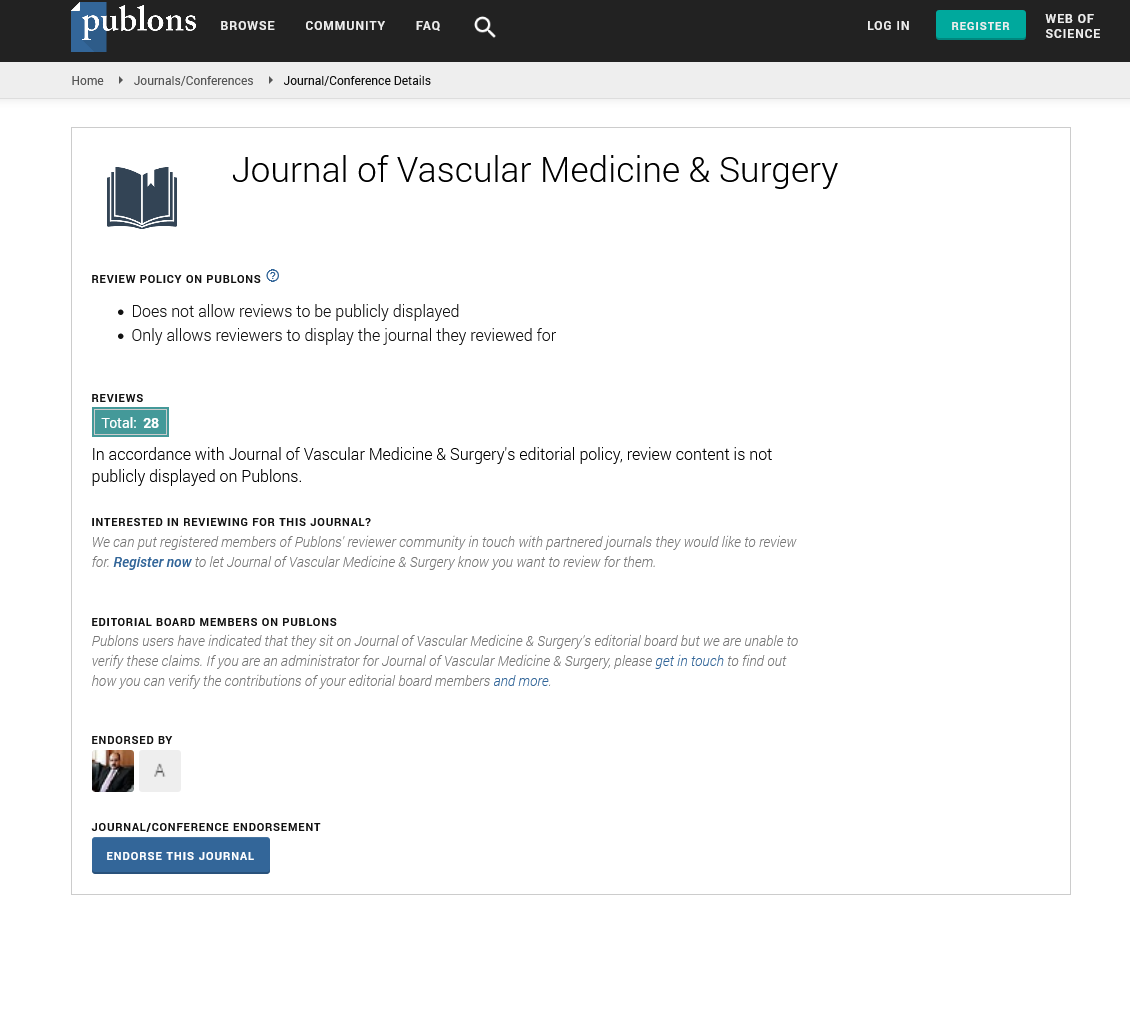Indexed In
- Open J Gate
- Academic Keys
- RefSeek
- Hamdard University
- EBSCO A-Z
- OCLC- WorldCat
- Publons
- Euro Pub
- Google Scholar
- SHERPA ROMEO
Useful Links
Share This Page
Journal Flyer

Open Access Journals
- Agri and Aquaculture
- Biochemistry
- Bioinformatics & Systems Biology
- Business & Management
- Chemistry
- Clinical Sciences
- Engineering
- Food & Nutrition
- General Science
- Genetics & Molecular Biology
- Immunology & Microbiology
- Medical Sciences
- Neuroscience & Psychology
- Nursing & Health Care
- Pharmaceutical Sciences
Patricija Ivanova
Department of Medicine, Riga Stradins University, Riga, Latvia
Biography
Dr. Patr?cija Ivanova is a certified vascular surgeon and Assistant Professor at the Chair of Surgery, University of Latvia. She earned her medical degree from the University of Latvia in 2004, followed by a residency in vascular surgery at Riga Stradi?š University from 2004 to 2010. In 2014, she completed her doctoral studies at the University of Latvia, obtaining a PhD in Medical Science. Dr. Ivanova has undergone advanced training in endovascular and open vascular surgery at esteemed clinics in Germany, Spain, Italy, and Portugal. Since 2004, she has been serving in the Department of Vascular Surgery at Riga East Clinical University Hospital and, since 2009, in the Department of Invasive Radiology. Her professional affiliations include memberships in the Latvian Association of Vascular Surgeons, the Latvian Association of Invasive Radiology, the European Association of Vascular Surgeons, and the European Association of Cardiovascular and Invasive Radiology.
Publications
-
Research Article
The Association between Infrageniculate Run-off Score and Selection of Revascularization Method in Patients with Critical Limb Ischemia and Long Segment Lesion of Popliteal Artery
Author(s): Aina Kratovska*, Sanita Ponomarjova, Lilian Tzivian and Patricija Ivanova
Background: Quantitative infrageniculate run-off scoring is not highlighted by guidelines of Critical Limb Ischemia (CLI) management. Although not strictly declared, infrageniculate run-off plays an important role in revascularization method (open versus endovascular) selection. Aim: The aim of this study was to test the infrageniculate run-off scoring system proposed by authors and its association with the selection of the revascularization method in CLI patients with long femoropopliteal lesions involving popliteal artery P1-P2 segment. Materials and methods: Forty-seven patients with Infrageniculate Bypass Surgery (IGBS) and 36 with Endovascular Therapy (EVT) of long femoropopliteal segment were enrolled into single centre case-control study. Long atherosclerotic lesion of popliteal artery P1-P2 se.. View more»

